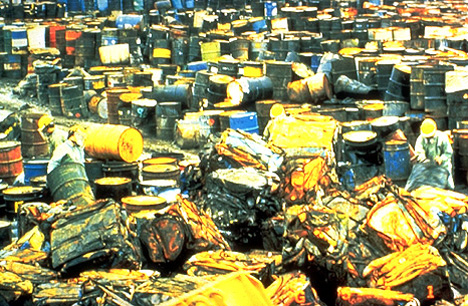Have you ever thought about the reverse logistics in your supply chains? Very likely if you are involved in medical logistics, but probably not in those terms: reverse logistics is not something that comes up on a daily basis in discussions in our field.
Reverse logistics is basically what happens when goods need to flow back in the supply chain. The most obvious example is of course when expired drugs need to be sent back for proper disposal, but reverse logistics might actually be more common than you think: disposal of materials and equipment, recalls, returns of overstocks so they can be used somewhere else in the organisation: these are all examples of reverse logistics.
Yet we hardly ever put systems into place that deal with our reverse logistics; possibly because it is seen as an exception instead of the regular occurrence that it actually is in many organisations. The results are predictable: losses and negative side-effects are common. Some examples:
- Financial losses Most organisations would have tight controls on expensive goods as they travel through the ‘normal’ supply chain. However, I have seen many instances in which these controls were absent or much less stringent when dealing with reverse logistics. In one example, when trying to see what happened with a large generator (value: several tens of thousands of dollars) after it was sent back for repairs, I discovered that nobody had actually followed up after it was sent back and a replacement arrived, and in the end it was untraceable. This was a big and unnecessary loss for the organisation.
- Negative health effects If expired drugs are taken from the reverse supply chain and used (possibly after having been sold on the local market), they can wreak havoc on the health of the people using them; some drugs become toxic after some time, but even those who do not will probably start losing efficacy and would be as bad as under-strength counterfeit drugs – and that is even apart from the effects of uncontrolled use of e.g. antibiotics on the development of resistant strains.
- Environmental damage Drugs might be beneficial for us, but they are not always so for our environment. Many drugs are toxic for other animals and plants; and even when they are not, it is not always clear what would be the long-term effects on the environment of uncontrolled dumping of drugs. That alone should be enough to have tight controls on what happens with expired drugs and how they are disposed of. This is even more true of e.g. used engine oil and other toxic waste: do you know what happens after an oil change? Is the oil just burned, or even worse, buried, possibly poisoning ground water for years to come? Or is it properly disposed of in an incinerator that reaches temperatures that are high enough to prevent hazardous fumes to be formed?
- Legal liability In many countries where we work, there are strict laws surrounding disposal of drugs (especially psychotropic drugs), and ‘losing’ drugs in the reverse supply chain can open us to legal liability. Similar issues arise around environmental damage.
- Loss of reputation Although there is still not much press attention for aid and global health organisations’ records when it comes to the effects I mentioned above, I don’t think it will be too long before our actions in this area will be put under the microscope as well (as they should be). Do you really want your organisation to be the first of the black sheep that will be singled out for our atrocious reverse logistics practices?
It is clear that we need to start working on our reverse logistics. It should not be too hard: the basic principles and best practices that we use in ‘normal’, forward logistics, can be used in reverse logistics too. The only question is: do we start working on this now or will we wait until it is too late?
{Continue Reading 15 comments }Aid and aid work, Featured, Logistics, Public health

